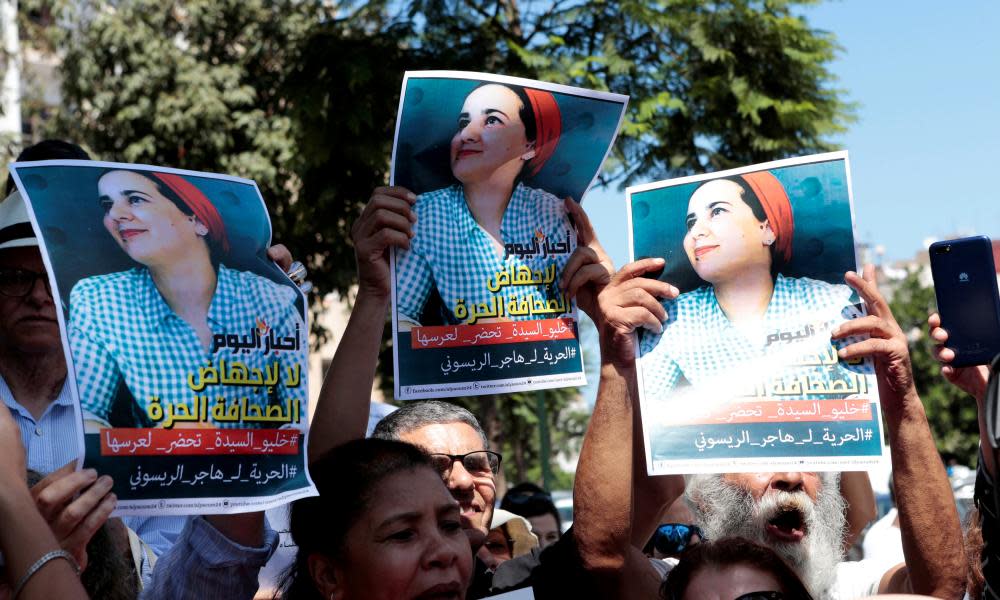Moroccan journalist jailed for 'illegal abortion' pardoned by king

A Moroccan journalist sentenced to a year in prison for an illegal abortion and premarital sex has been pardoned by the country’s king in the latest twist of a case which has come to symbolize repression of women’s rights and freedom of speech.
Hajar Raissouni was found guilty of charges of “having an illegal abortion and sexual relations outside marriage”. Her fiancé, Prof Rifaat al-Amin, was also given a one-year sentence, while a doctor, Mohammed Jamal Belkeziz, was given a two year sentence in the same trial for alleged complicity.
On Wednesday, Morocco’s King Mohammed VI pardoned all three in a move criticised by observers as a cosmetic solution.
“This royal pardon comes within a framework of royal compassion and clemency, amid concern by his majesty the King to preserve the future of the couple who intended to start a family in line with religious precepts and the law, despite the error they committed which led to the legal proceedings,” declared the King, via a royal communiqué.
Raissouni, who was arrested outside a clinic in Rabat with her fiancé on 31 August, maintained from the start that she never underwent an abortion. Both she and the medical staff arrested along with the couple said she was treated to remove a blood clot.
Campaigners say that some 800 abortions take place every day in Morocco, where the procedure is illegal except when the woman’s life is threatened due to pregnancy and with a husband’s permission.
In a statement from prison before receiving the pardon, Raissouni said she was targeted for her work as as a journalist and for her family’s history as dissidents.
“It is evident that the purpose of my arrest was vengeance against my journalistic activities,” she said. She added that her coverage of the Hirak protest movement in the country’s northern region had put her in the crosshairs of the state.
Observers said that the pardon did little to remedy the wider problems that led to Raissouni’s case in the first place, in a country where critics’ personal lives are sometimes publicly used to silence them.
“She should not have been jailed in the first place,” said an Amnesty International staff member who requested not to be named. “She must be acquitted properly of all charges and her name cleared. Targeting Hajar and intruding in her private life simply for doing her job as a journalist is another indicator of the crackdown on freedom of expression in Morocco.”

